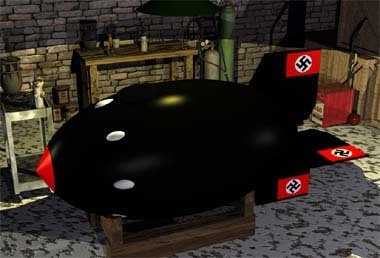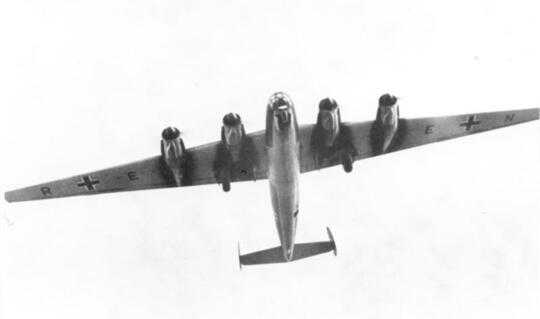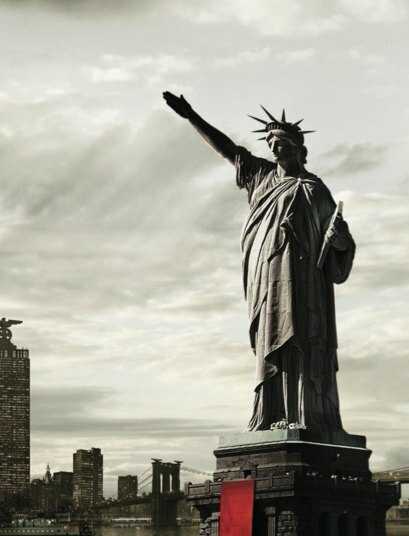140
36
A common topic in alternate history fiction works is the question what would have happened if a major war had been won by the other side. These usually focus on the events after the war, and the change itself is not depicted in a realistic way: it's either not discussed, or attributed to a superweapon or deus ex machina.
I know that WW2 was a very complex war, with a huge number of social and economic factors in it so that there was no single realistic "miracle" which would have guaranteed a certain different outcome, therefore I list a number of disclaimers, in order to make this question fit into the topic of this site.
It doesn't have to guarantee an Axis victory, but it has to significantly increase its probability.
A victory doesn't necessarily mean global domination (which neither power had any realistic chance of achieving). If Germany ends up in control over most of Eastern Europe (like the Soviets ended up doing in real life after the war), with a Soviet Union unwilling to fight, and with a peace treaty with the western Allies at least slightly favorable to Germany, it would count as a victory for Germany.
The change has to be a single event, or a collection of tightly coupled and interdependent events. It has to happen either during the war, or not more than a few years before it. The war should, at least in the beginning, look very similar to what happened in real life: the alliances should be roughly the same, the events like the conquest of Poland, the occupation of France, an attack against the Soviet Union, and a naval war between the USA and Japan should occur (or at least begin), even if at different dates or different order. The major participants should be the same.
The change should have a realistic justification (so no secret nazi superlaser), I would think in the following changes: events progressing slightly faster or slightly slower than in real life, a single large battle or series of interconnected battles won by the opposite side (if that had even a small chance of happening)
I'm thinking along the lines of Germany and its allies advancing faster against the Soviets and crushing them before they had any chance of putting up a good defense, or Hitler not antagonizing scientists so they could develop even better equipment or maybe even a nuclear bomb, or Japan winning the battle of Midway and keeping the USA from entering the European theater, or a different sequence of diplomatic events leading a peace on one front which in turn could lead to a victory on the other front, etc.



3"The nazis not invading Poland and thus turning the USSR against them." @Jake: Germany and USSR invaded Poland together, they where allies that time. Later, Germany attacked USSR (attacked an ally). Seems that Hitler thought that Stalin would attak him if he was not faster. – Julian Egner – 2017-02-03T10:52:24.827
@JulianEgner Yes, invading Poland did not turn USSR against Germany. Tho it did turn Britian/France against Germany. Hitler thought that they wouldn't make good on their threat. In fact, Hitler never planned to make war with Britain as he envisioned a British Empire alongside his German One, which is one reason why he had too few U-Boats in 1940. – DrZ214 – 2017-04-07T03:22:11.597
Regarding the old answer that Hitler shouldn't have invaded USSR, however, did that to try to get to the Caucasus oil fields. The question is, would he have run out of oil if he hadn't done that? – colmde – 2018-02-02T16:42:07.137
25The nazis not invading Poland and thus turning the USSR against them. – Jake – 2015-12-02T20:28:49.093
53The axis chances were actually not that great, they started with a huge standing army sure, but couldn't keep up with the rate the others could build up forces so it was just a matter of time until attrition took them down. The biggest change though would be a simple one, never attack Russia! They lost allot to Russian winter, and having an extra flank to defend divided what forces they had. I don't know rather or not it alone would have saved them, but I know avoiding attacking Russia would be a huge boon, and doesn't require a spectactical change, someone realized it was crazy – dsollen – 2015-12-02T21:10:05.807
79I'd go with "not invading Russia" -- Napoleon. – Criggie – 2015-12-03T03:38:35.587
4Considering that this question already has 20+ answers, it makes me appreciate history way more knowing that there were so many pivotal points during the war, and that any minor changes could have swung the victory in the opposite direction. I know with the benefit of hindsight it's easy to see what went right/wrong, and if things had happened differently at the time the other side would have reacted differently to counter it etc., but it's fascinating to think that the outcome of the conflict was balanced on a knife edge. +1 – Mike.C.Ford – 2015-12-03T11:08:17.867
2
May I recommend this book for a fascinating "small moment" that might have prevented the Dunkirk evacuation?
– deworde – 2015-12-03T14:02:31.700Perhaps Hitler not focusing that much on trying to gain the mythical superpowers and dei ex machinae? :-) – Pavel – 2015-12-03T16:58:01.853
1
related: What if the attack on Pearl Harbour had been averted in World War 2?, What if Germany had atomic bombs in WWII, What is the smallest change one could make within the past two hundred years to save the most lives?
– Crissov – 2015-12-03T20:01:12.983What’s not been suggested and I’m not knowledgable enough about: 1. Death of Stalin before 1943 results in Soviet/Russian civil war. 2. Franco’s Spain joins forces with Germany and Italy in 1940 or 1941, takes Gibraltar. – Crissov – 2015-12-03T20:25:09.733
11Funny, we have a whole Stack Exchange spin-off for history, but this question would get crucified there. – None – 2015-12-03T20:47:55.123
2
anyone performing time travel. Regardless of the reason or destination, if Holywood has taught us anything it's that time travel of any kind causes the nazi's to win WWII : http://tvtropes.org/pmwiki/pmwiki.php/Main/GodwinsLawOfTimeTravel
– Joseph Rogers – 2015-12-04T09:48:05.717Lots of good stuff here and 'some' rubbish :-). Consider looking at the many things which seem to have helped the allies win. You can find a large number of things which by themselves almost seem to have made THE difference. Knock out a good number and it may turn the tide.| Hitlers obstinate no-retreat fighj where you stand approach - good sometimes, more often fatal | Chamberlain won the war with Munich! - he gave them the extra year needed to gave them the Spitfire which swung the Battle of Britain which forstalled Sealion which ... ... – Russell McMahon – 2015-12-05T09:10:37.423
... . (Hurricane was better than most credit it being - but not enough. | - Churchill was more human than many seem to realise but made a vast difference ... . C' dead = ...? | Enigma - your code has been broken - Imbeciles! | The bomb, as has been said. | Malta - agh - eliminate Malta and you have the Mediterranean and ... |. Realise how crucial African front is and resource it well enough. Small compared with other demands (even though the rest ever so urgent).Egypt gives you Palestine gives Caucasus access to Eastern oil fields gives ... - India was a major Britsh food source. | Much more – Russell McMahon – 2015-12-05T09:14:04.470
If the Bletchley Park four had never written their letter to Churchill, or Churchill never read it, or never acted on it. That Churchill did act on it, overriding his own generals and advisors is pretty surprising, so ignoring it is actually the more likely course. Almost every answer here could have been undone by Bletchley Park anyway ... unless Churchill never gave them the resources that they were being denied. – RBarryYoung – 2015-12-05T16:42:36.150
2The keys of WWII are US resource committment and Germany's invasion of the Soviet Union. If US involvement had not taken place, or Germany had defeated the USSR, Germany would have been very difficult to remove from Western Europe. The key is Japan's entry into the war by attacking Russia instead of the USA. That would have both kept the US out of the war for some time and prevented the USSR from moving their Far East divisions. Siberian oil and mines would have given Japan interior lines of supply, and Western hatred of Communism reducing the amount of support offered to the USSR. – lonstar – 2015-12-05T22:40:44.353
Here is a great compilation of all the things Hitler screwed up: https://www.youtube.com/watch?v=GK419Nlp8eU Basically, if he wasn't an idiot he could have won.
– Chloe – 2015-12-06T07:26:49.897Further reading: Philip Roth - The Plot Against America – Alexander – 2015-12-06T13:49:07.297
Please check out the book The Man In the High Castle by Philip K Dick. Excellent read. I believe they talked about how the US stayed very very firm to its isolationist policy, thus they couldn't mobilize or build up their armies or defenses, resulting in the Axis easily coming through to defeat them. Great new tv series with the same name is out there as well. – Registered User – 2015-12-08T02:40:41.133
2Is it acceptable to remove Hitler pre-war? He was a decent demagogue but a poor leader in terms of policy, diplomacy and strategy. Also, not having the Holocaust would have alienated far less of the world. Imperialism and war was still "usual" at the time, and WWII would probably have happened, anyway, what with the terms of the treaty of Versailles (the dissatisfaction with which Hitler used and fueled but did not create) hanging over Germany. – Raphael – 2015-12-08T16:47:05.097
Would bottling up Pearl Harbor by successfully blocking the harbor entry with the Nevada have made a big enough difference? From what I recall, if the harbor entrance had been blocked with a shipwreck, most of the US naval fleet would have been trapped, severely limiting the US's ability to take part in the war for about 6 months. And it's a very viable "small change" that would cause major changes in the timeline. – Martin Carney – 2015-12-08T23:04:38.037
2An extremely important decision was done by Stalin in the beginning of 30-s: to develop new industrial areas to the east from Ural as opposed to that in Ukraine. If it was Ukraine, it would be occupied by German in the first weeks of the war. With the loss of the majority of industrial power, the war would be lost by USSR. – TT_ – 2015-12-09T00:01:26.063
Not invade Russia. Or at least not invade when they did is obvious. But what would be the alternative? Turn to the middle east and cut off the allies supplies of oil and gas. Invade the Levant, Iraq and then Iran. Threaten India. – wjousts – 2015-12-09T16:25:18.957